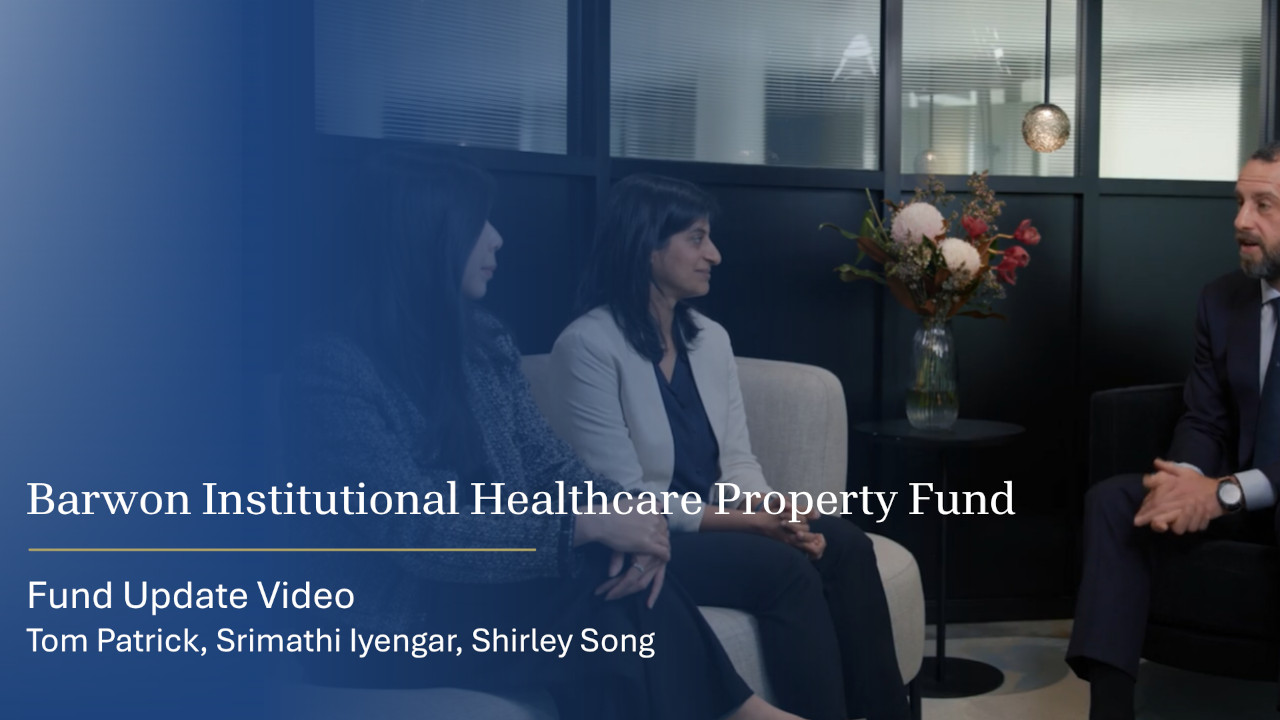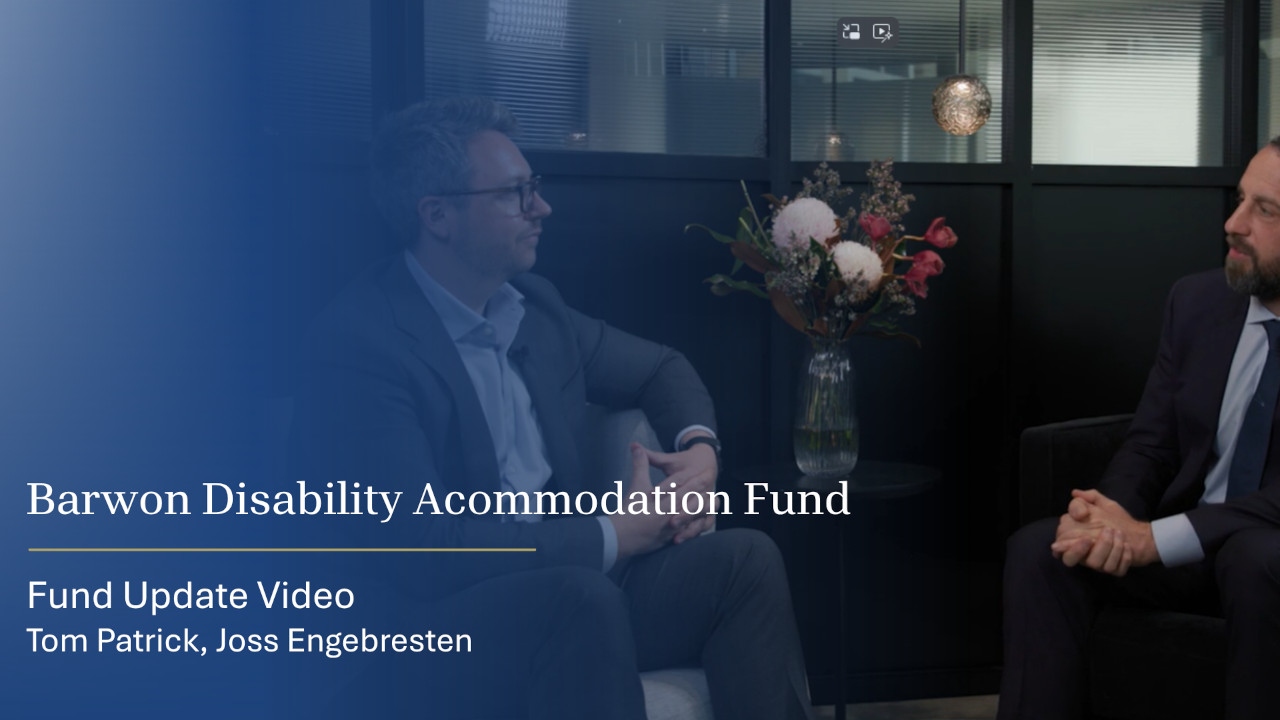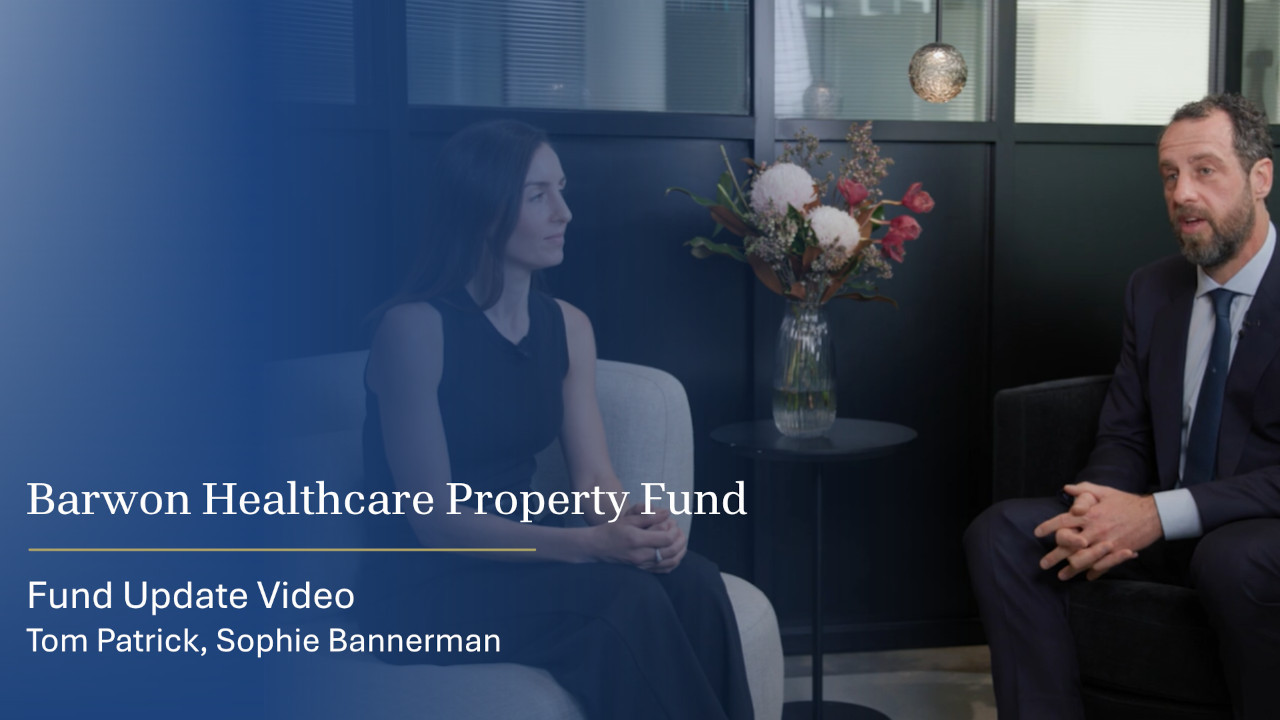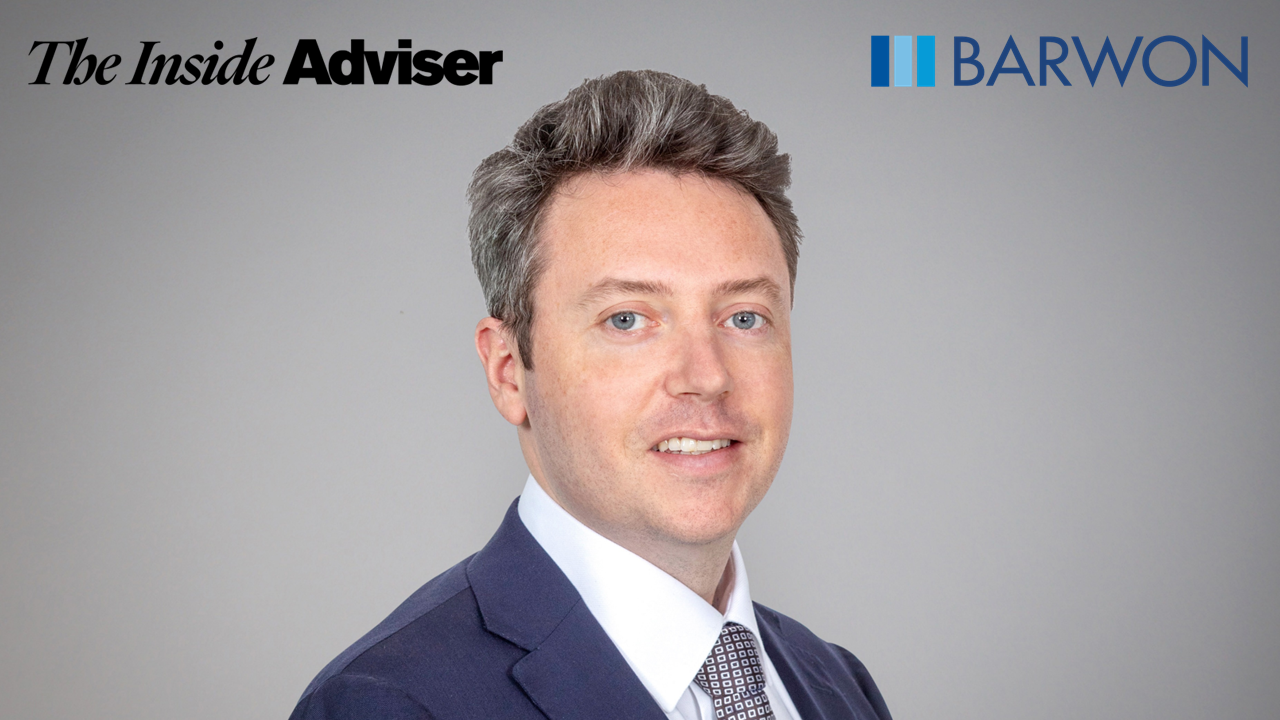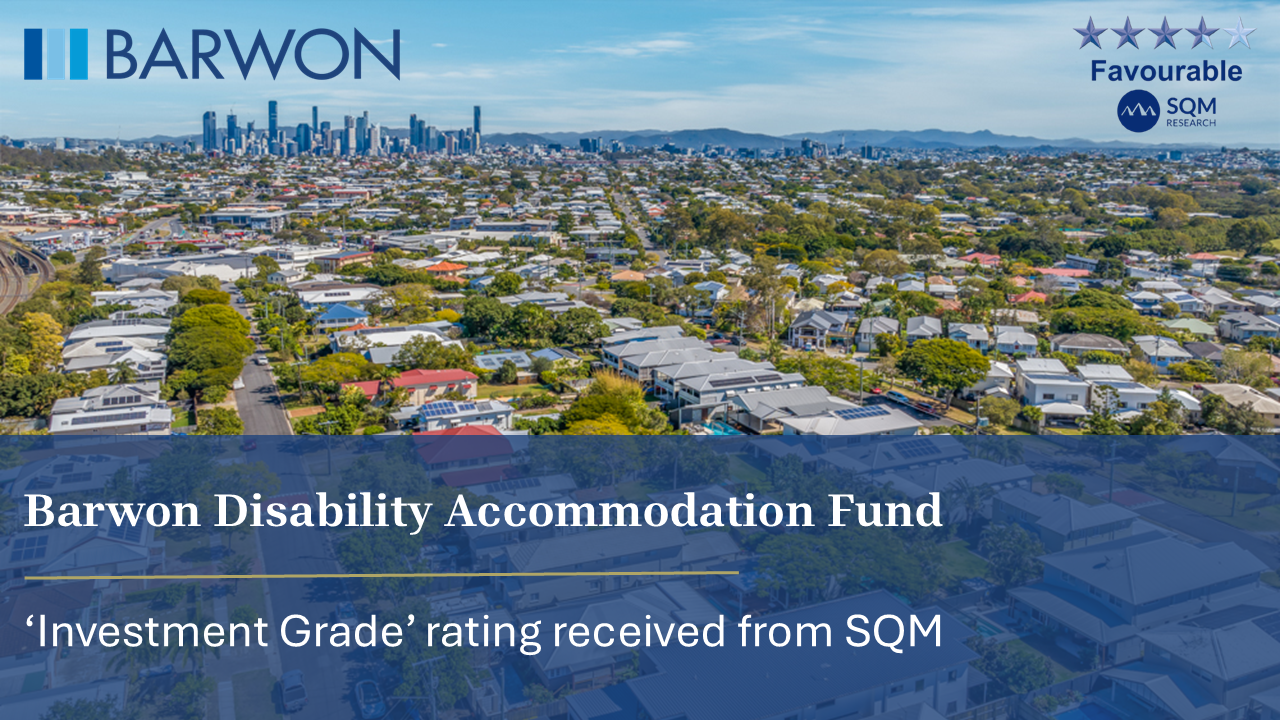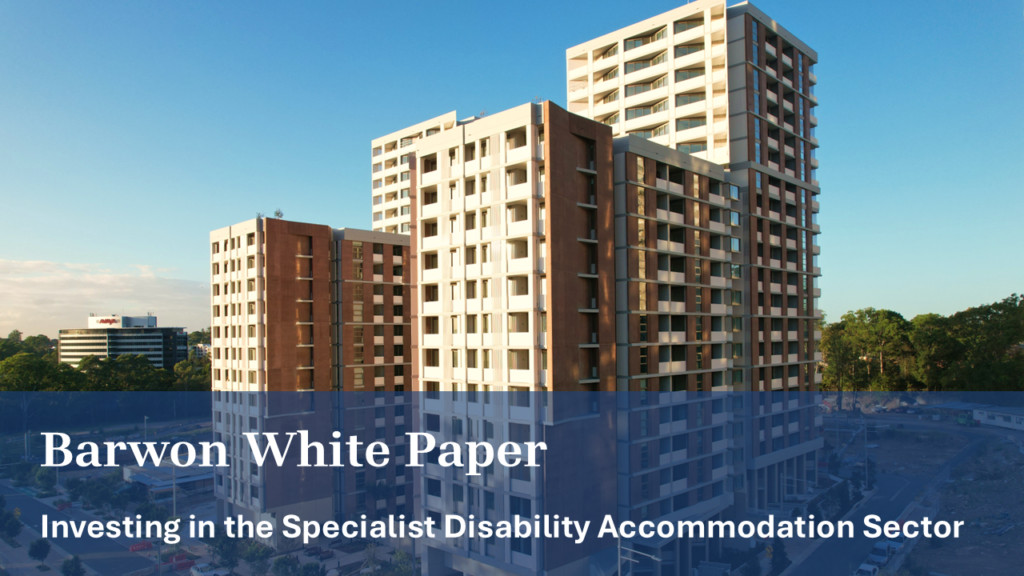James Dunn – Senior Journalist and Editor
The attraction of a specialist managed fund should be in the manager’s ability to position the fund to tap into strong and sustained tailwinds. The Barwon Healthcare Property Fund is doing exactly that.
Positioning a managed fund where government policy is increasingly going is a sound investment policy. The Barwon Healthcare Property Fund, which gives its wholesale investors exposure to a portfolio of Australian healthcare properties, is a good example of such positioning.
The fund holds 50 healthcare real estate investments, which include a variety of primary and secondary healthcare facilities that are occupied by some of Australia’s largest private medical providers and state government tenants. ‘Primary’ healthcare is the health care people seek first in their community, such as at GPs, pharmacies and allied health professionals; ‘secondary’ healthcare involves specialist care for patients referred by primary care providers, often in hospitals or clinics, for treatment by specialists’ expertise.
Primary healthcare plays a critical role in Australia’s healthcare system; in fact, it is the cornerstone of Australia’s healthcare model. The benefits of primary care are clear: it promotes preventative care, ensures continuity of care and provides an essential safeguard to broader healthcare infrastructure. By improving access to primary care, the need for expensive hospital admissions is reduced, which leads to both better health outcomes and a more cost-efficient, sustainable healthcare system.
The returned Labor government has pledged substantial increases in healthcare funding (as the Coalition had also done in the lead-up to the election.)
At the heart of these discussions is the future of general practice services and, more specifically, the sustainability of bulk-billing. In a strategic move to strengthen the primary care system, both parties have committed to boosting funding for general practice services, with a key focus on ensuring equitable access to bulk-billed consultations.
Sophie Bannerman, who manages the Barwon Healthcare Property Fund, says it is no surprise that primary care funding consistently enjoys bipartisan support. “As the government embarks on a major reform package starting in November 2025 aimed at enhancing Medicare funding, the importance of strengthening general practice services becomes ever more apparent,” she says. “The proposed funding increase will not only boost payments for bulk-billed services but also ensure that vulnerable and underserved communities, particularly in rural and remote areas, have improved access to essential healthcare services.”
The government says funding increases of up to 103 per cent for remote regions and up to 62 per cent for metropolitan areas on commonly used GP consultation items will directly address the long-standing issue of under-funded general practice services in communities where bulk-billing is most needed.
General practices have faced increasing financial pressures over the past decade. From 2013 to 2023, the indexation freeze on Medicare rebates meant that government funding for bulk-billed services remained stagnant while costs in the wider economy – as reflected in the Consumer Price Index (CPI) – rose by approximately 30 per cent. This disconnect created a growing disparity between the real costs of operating a practice and the financial support available from Medicare, placing significant strain on the bulk-billing business model.
In response to this funding shortfall, general practitioners adapted their business models. The move from bulk-billing to private billing has become more prevalent, with out-of-pocket fees covering the difference. Since 2020, the annual bulk-billing rate has fallen from 89 per cent to 77 per cent, with the impact particularly felt in more disadvantaged regions, where the financial barriers to access are more noticeable. “As these challenges persist, the upcoming funding reforms hold promise, particularly for those who rely most on bulk-billing,” says Bannerman.
This all plays into a notable trend in healthcare delivery over the past few decades, which has been the shift from small, solo GP practices to larger, multi-disciplinary medical centres. “This evolution reflects the growing complexity of healthcare delivery and the need for diversified revenue streams,” says Bannerman. In 1990, about 26 per cent of GPs worked as solo practitioners; by 2021, this figure had fallen to just 2 per cent, approximately. This trend toward integrated care – where general practices, allied health services, pathology, radiology and pharmacy are co-located – has created opportunities for more efficient healthcare delivery, better patient outcomes and financial sustainability for providers.
While the recent reforms will not fully eliminate out-of-pocket payments or resolve workforce challenges, they will support general practices, which are evolving into multi-disciplinary centres. These centres are increasingly seen as the backbone of Australia’s primary care system, ensuring that services are delivered more efficiently and equitably across the nation.
The Barwon Healthcare Property Fund has a significant allocation to multi-disciplinary centres. The fund’s investment strategy is to focus on specialist healthcare assets, benefiting from the differentiated investment exposure and lower correlation with other property sectors. This suits an investor looking for a truly defensive holding, with Australia’s growing and ageing population driving strong demand for healthcare services, demand that is largely unaffected by the economic cycle.
“We are always trying to position our fund to benefit from the shifts in modern healthcare delivery – and the move to multi-disciplinary centres is a perfect example of this,” says Bannerman. “Through targeted investments in multi-disciplinary medical centres, Barwon expresses its strong belief in the essential role these centres will play in shaping the future of Australian healthcare.”
To read this article on The Inside Adviser, click here.
Media Enquiries
Mekala Shanker
Marketing & Communications Manager
Barwon Investment Partners
0402 897 339
